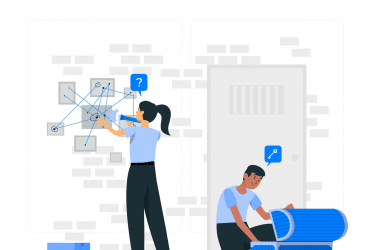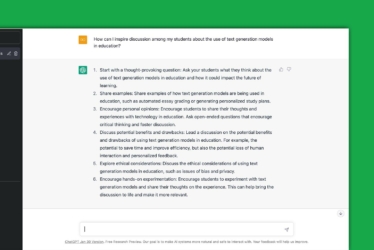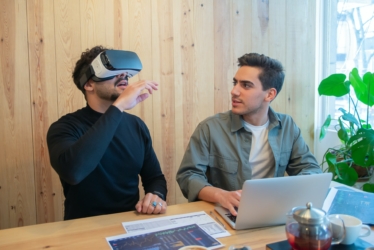Projects
Time to Act – Emergency Care: practising the ABCDE approach in virtual reality
The Centre for Innovation of Leiden University, together with the Leiden University Medical Centre (the team of Prof. dr. MEJ Reinders), created an immersive interactive VR experience using 360° video to practise the application of the ABCDE approach. This cornerstone method is a systematic approach to quickly and accurately assess and act upon emergency situations concerning critically ill patients.
What is the ABCDE approach?
In emergency care, the immediate assessment and treatment of critically ill patients is essential during clinical emergencies. The Airway, Breathing, Circulation, Disability, Exposure (ABCDE) approach is a systematic approach to estimate—with minimum loss of time—the state of health of a patient quickly and accurately, and to act in order of priority. In traditional medical education, students learn the protocol by heart and practise the application of it through case studies. Later, during their placements, students get the chance to experience the application of the protocol in practice and train in decision-making themselves.
Enhancing traditional teaching methods
While looking at how the approach is taught, Leiden University Medical Center identified issues that arise when students move from learning the protocol to applying it:
- Students often feel overwhelmed during their first encounters with critically ill patients, which could hinder them to accurately express their thoughts and actively participate in the emergency situation.
- Training situations are not always available: doctors choose whether or not they provide room for students to share their thoughts. The assessment depends on whether or not a certain medical situation is appropriate for student participation. When students can participate they assess the urgency and risks present in the situation of the patient to emulate how the doctor approaches their assessment.
Filling the theory-practice gap
During the project design and based on the identified problems, the following learning goals were defined for the learning experience:
- Increase student confidence in preparation to apply the ABCDE approach in real life situations.
- Help students to familiarise themselves with their future practice. Students need to be aware of the real-life challenges that arise when applying the method in practice, as opposed to in role-playing situations or during case studies.
- Aid students develop their decision-making abilities for their future career path in the sense that they can use a virtual learning experience to orient on a medical role that involves critical decision making in emergency situations.

To achieve these goals, a 360° video-based virtual reality application, Time to Act – Emergency Care, was created to allow students to practise decision-making based on the ABCDE protocol. While using the app, the student assumes the viewpoint of an intern talking to a patient in an internal medicine ward. During this conversation, the student must engage with a critically ill patient. The software requires the user to apply knowledge with and assist a present doctor and nurse who are handling the situation. From this moment, at each crucial moment, an interactive model prompts the student with questions to guide them through the assessment and decision-making process that lies at the heart of the ABCDE protocol.
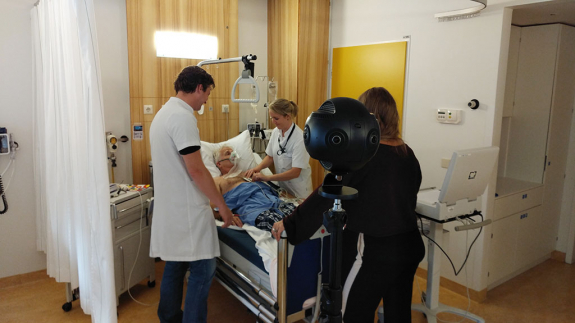
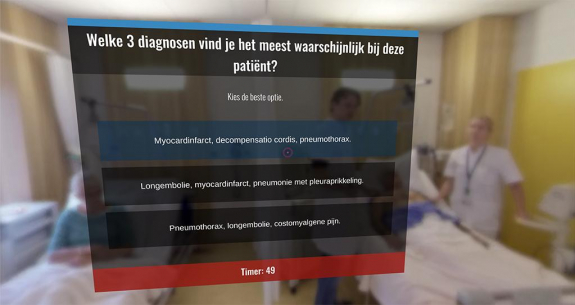
To answer each question, the student can consult an in-app version of the patient’s files via an Electronic Health Record system to acquire more information to base their decision on. Through visual and auditory cues, the experience simulates time pressure and attempts to expose users to stress in order to resemble real life scenarios. After completing the virtual learning experience, students and teachers reflect on the case together and discuss the decisions that have been made. This aligns with Centre for Innovation’s vision that virtual reality does not replace, but enhances established learning curricula. The review and guidance provided by teachers are still critical to contextualise the learning material and to ensure students are aware of the correct information.
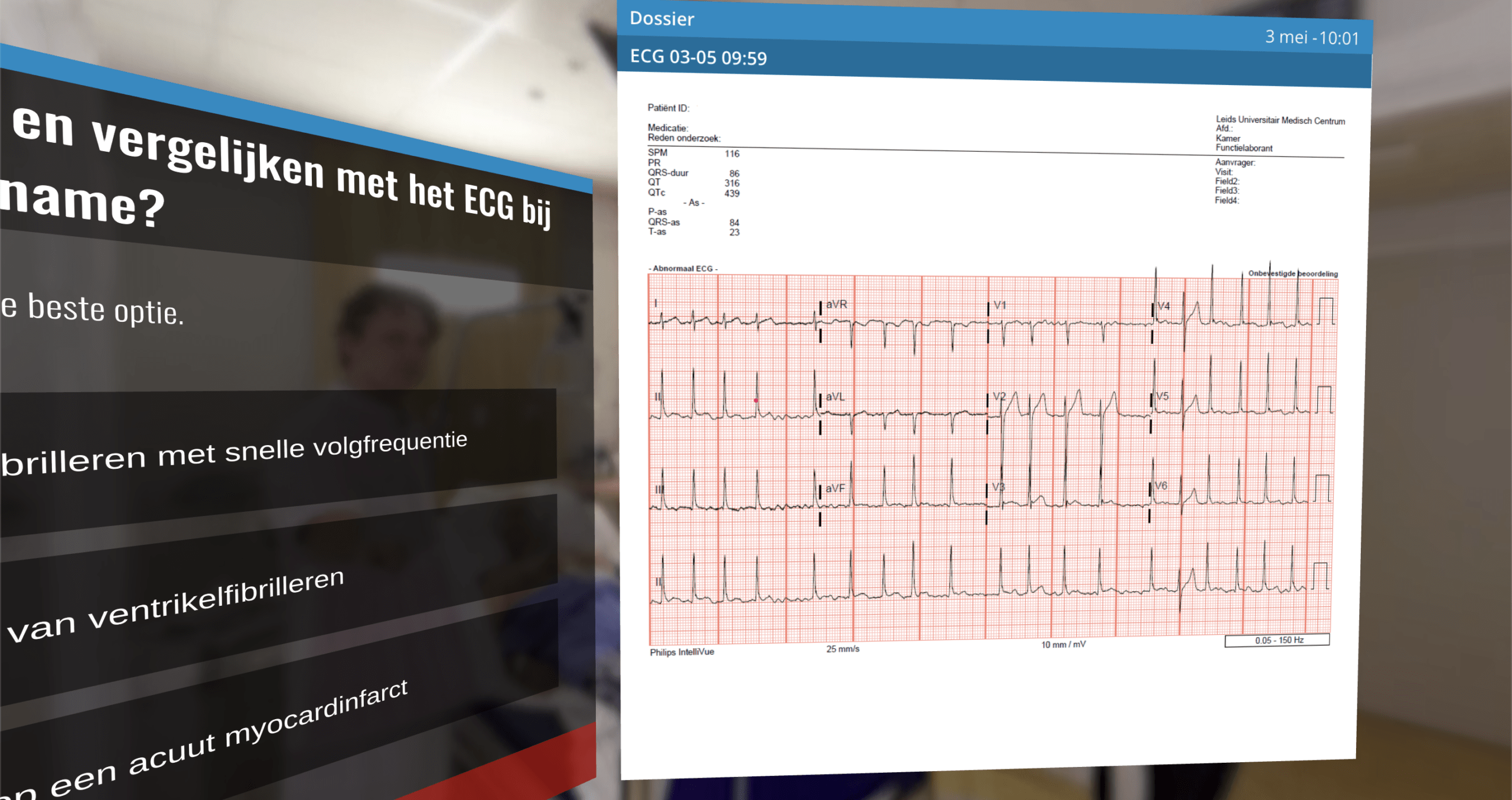 Users can choose to consult elements from the patient’s Electronic Health Record, such as ECG’s captured.
Users can choose to consult elements from the patient’s Electronic Health Record, such as ECG’s captured. Since September 2019, the Time to Act – Emergency Care has been used to educate all new interns at the Leiden University Medical Centre. It is part of a two-week preparatory course students must complete before they start their first placement in a hospital. After a working group session about the ABCDE approach, students adorn VR glasses and are immersed in the clinical situation. Afterwards in a teacher-guided session, they share and discuss their experience as well as the medical decisions that were taken.
Get in touch with the author

Donna Schipper
ICT Developer Innovation
d.schipper@sea.leidenuniv.nl
Get in touch
We work with educators and students to make AR and VR applications to enhance learning. If you’re interested in learning more, please get in touch with us at C4I@sea.leidenuniv.nl




